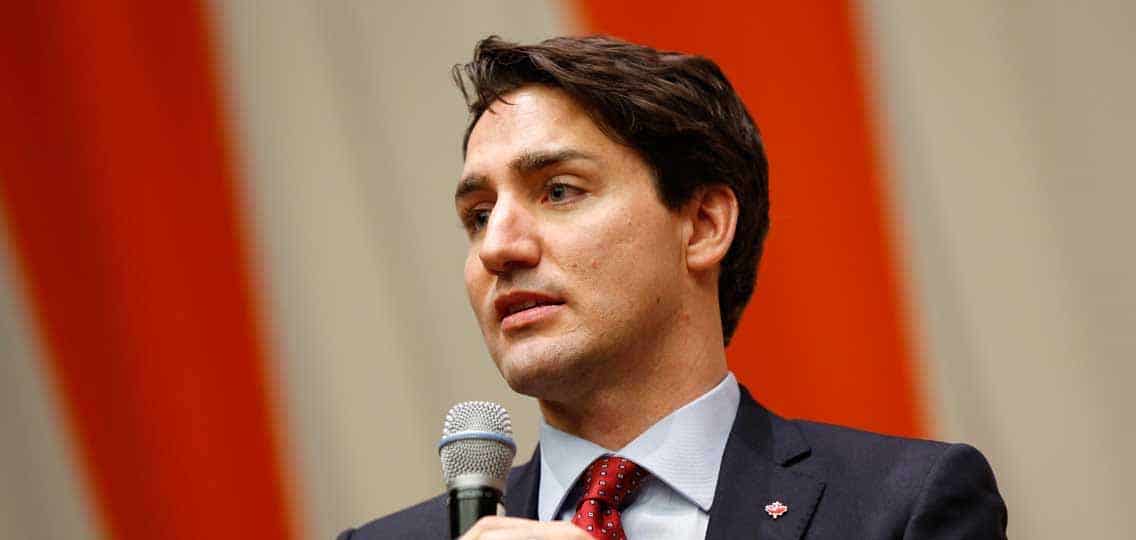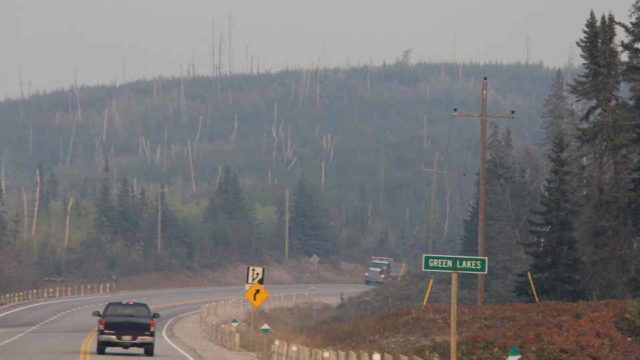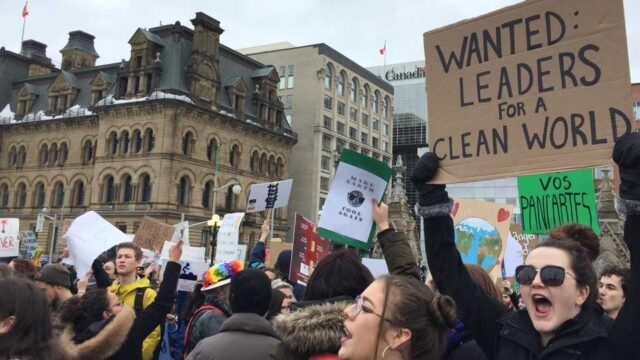The Ontario Court of Appeal recently handed a win to the federal government—and dealt a blow to Doug Ford and other premiers bent on derailing the national carbon price—when it found the Greenhouse Gas Pollution Pricing Act constitutional.
The ruling went further than an earlier decision out of Saskatchewan, defining the purpose of the act as “establishing minimum national standards to reduce greenhouse gas emissions.”
The emphasis on “national standards” is key. It acknowledges that climate change doesn’t respect provincial borders and that one or more provinces can too easily defeat national efforts to tackle it.
Crucially, it gives the federal government the green light to go beyond carbon pricing and introduce a comprehensive new climate law that sets legally-binding pollution targets and equips Canadians with tools to hold governments to account for meeting them.
Around the world—in the U.K., Denmark and New Zealand—this is what leading climate law looks like.
Canadians are prepared to back this type of bold climate legislation. Environics polling, commissioned by Ecojustice, the environmental charity where I work, indicates two-thirds of Canadians agree we need mandatory and legally-binding emissions targets to effectively tackle climate change.
Though that same polling suggests seven in 10 Canadians are uncertain about how effective Canada’s efforts to reduce greenhouse gas emissions have been to date, the Liberals will tell you they’ve already done more for the climate than any government in the past.
They played a leadership role in forging the Paris Accord. They repaired environmental laws the previous government gutted in 2012. And, yes, they passed carbon pricing legislation and successfully defended it in court—twice.
These gains might sound good during a stump speech, but they are incremental measures. They fall short of countering the climate emergency that threatens the health, security, and well-being of Canadians.
There’s little sign—so far—that the Liberals plan to go beyond this incremental approach and commit to ambitious climate action. Rather, it seems they may be prepared to double down on the promise of a middle way that balances the economy and environment.
Those concepts don’t have to be in opposition. But it’s impossible to defend Canadians from climate breakdown and continue business as usual.
A prime example of this played out during a bizarre 24-hour period last month. The government declared a climate emergency one evening. The next afternoon, it approved the Trans Mountain pipeline. This project will lead to significant new emissions at the exact moment we need to dramatically shrink our carbon footprint.
Let me be clear: Canada can get on track to a safe climate future, or it can push a pipeline through. It cannot do both.
A stark report from the UN IPCC released last year concluded that we have just 11 years—until 2030—to halve global emissions, or risk unimaginable climate-caused chaos.
This fall, Canadians will elect the government that will likely lead us through the next four of those 11 years. The incoming government will set Canadians up to succeed or fail in defending the people and the places we love.
To date, the Liberals are the only major federal party that has yet to tell Canadians how they plan to ramp up action on climate change should they form Canada’s next government.
With the exception of axing the carbon price, the Conservatives’ climate plan contains little in the way of action. Both the NDP and Green Party platforms include clear commitments to set more ambitious emissions reduction targets. The NDP also promises to introduce climate accountability laws.
As they finalize their climate platform, the Liberals have a choice: stick to business-as-usual rhetoric that fails to keep up with the growing concerns of Canadian voters or commit to real climate leadership, grounded in the law.
Either way, it’s 2019 and all signs indicate there’s no sunny middle way out of a climate emergency.
This opinion piece was originally published in The Hill Times on July 15, 2019.







